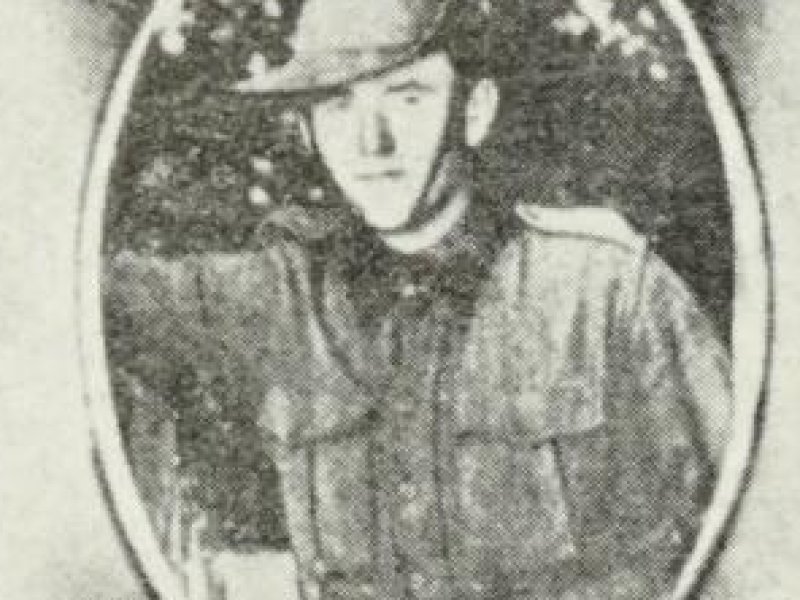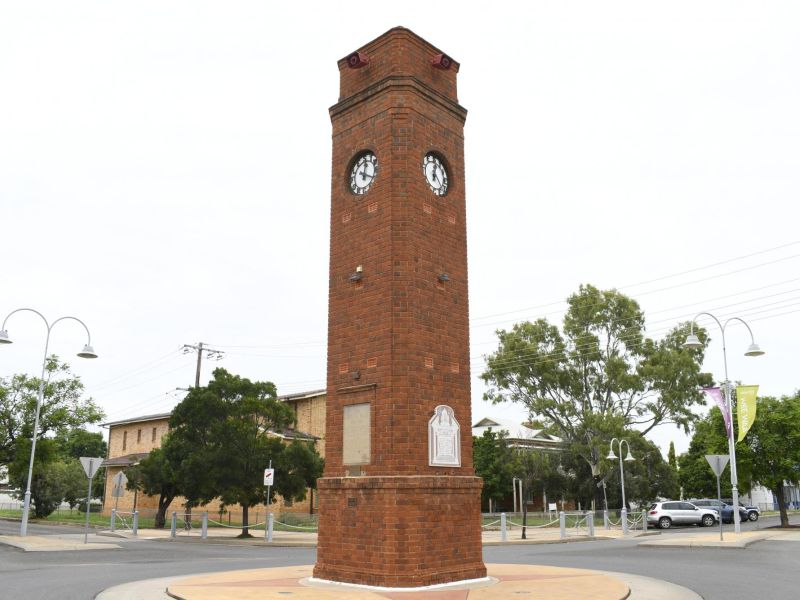Driver Roy Edward Francis Sadler, 110th Australian Howitzer Battery
Roy Edward Francis Sadler was born in Pilliga, New South Wales in 1896, to Edward and Jane Sadler. At some point his father owned a selection called “Cardonis” on the Pilliga Road, but it is unclear whether he grew up on that property. We do know that he grew up in or near Wee Waa where he attended the local public school. He went on to become a labourer.
Sadler enlisted in the Australian Imperial Force in August 1915, two months short of his 19th birthday. He began training with the light horse, first in Australia, and then in Egypt. He spent some time in hospital with the mumps, and a few months after his return transferred from the light horse to the artillery.
He arrived in England in June 1916 and a few weeks later, went to fight on the Western Front.
Sadler saw service in a number of different units before transferring to the 10th Field Artillery Brigade. He joined the 110th Australian Howitzer Battery as a driver to complete its establishment.
Life in the artillery was dangerous. The enemy’s artillery constantly searched for Australian guns, hoping to put them out of action. And the men of the artillery were handling explosives and other dangerous material on a daily basis.
On 14 June 1917, Sadler’s battery was stationed near Messines in Belgium. They had a dump of ammunition nearby in order to supply their guns as they fired them. A German shell hit this dump and it went up in a massive explosion. Sixteen men were killed outright, and another three later died of wounds. Six other men were wounded.
Driver Roy Edward Francis Sadler was one of those killed in the blast. He was 20 years old.
His comrades built a monument nearby with the names of all the fallen men. Sadler was buried in Kandahar Farm Cemetery in Belgium.
A member of the unit wrote to the Sydney Mail newspaper in 1919:
“The brave lads of the 110th Howitzer Battery, A.I.F., who fell here were nearly all from New South Wales. It was at the time of the brilliant victory at Messines. They had just moved their guns forward, and were preparing more ammunition at a dump, singing and joking as usual, when a shell fell in the stack 1.5s, causing 27 casualties.”
In Australia, his parents wanted the words “In my father’s house there are many mansions. Son, I go to prepare a place for you” for his headstone.
Unfortunately their choice contained too many letters, and in the end they settled on the simple words, “May his soul rest in peace”.
Meleah Hampton, Historian, Military History Section
- Australian War Memorial https://www.awm.gov.au/collection/AWM2016.2.304

 Australian War Memorial
Australian War Memorial